Will Contest Lawyers in Colorado
Undue Influence
A will may be considered invalid if the testator who created the document was unduly influenced by another individual. Generally, three things must be proven to show that a testator was unduly influenced. First, the person must actually exert an influence over the testator that is undue. Second, the influence needs to be so strong that it overpowers the testator's mind at the time the testator executes the will. Mere influence on the testator is not enough. Finally, the influence must cause the testator to execute a will that the testator would not have signed but for the undue influence.
There are several factors a court will consider when determining whether the testator was unduly influenced.
Factors the courts consider include:
- Motive
- Untraditional disposition
- Opportunity and access
- Relationship between the parties
- Susceptibility
- Ability to resist
At Jorgensen, Brownell & Pepin, P.C., our Colorado contested will attorneys can assist you in determining whether you have a basis to bring an action for undue influence.
Lack of Capacity
A will may be considered invalid if the testator who wrote the document lacked capacity to execute it. There are certain requirements a testator must fulfill in order to show he or she was capable of executing their will. The decedent must be capable of knowing and understanding the nature and extent of his property, the natural objects of his bounty, and the disposition he is making of that property. Generally, an isolated and peculiar act by the decedent without evidence of insanity, hallucinations, or delusions, is not sufficient to deny probate of decedent's will. Our attorneys can assist you in determining whether you have a basis to bring an action for lack of capacity.
When a Will Is Created Fraudulently
A contested will may be considered invalid if it was executed due to fraud. In order to determine whether a will was created by fraud, the court will consider four things. First, the court will determine if someone made a false representation to the testator. Second, the court will consider whether the individual making the false representation knew the statement was false. Third, the testator must have reasonably believed the false statement. Finally, the false representation must cause the testator to execute a will the testator would not have signed, but for the misrepresentation.
Probate Specialties
Get more information about our probate representation
We’ve Helped Others Like You
Our Colorado Attorneys











Get The Help You Need
Get JBP Legal’s experience on your side. Contact us for questions or a consultation.





